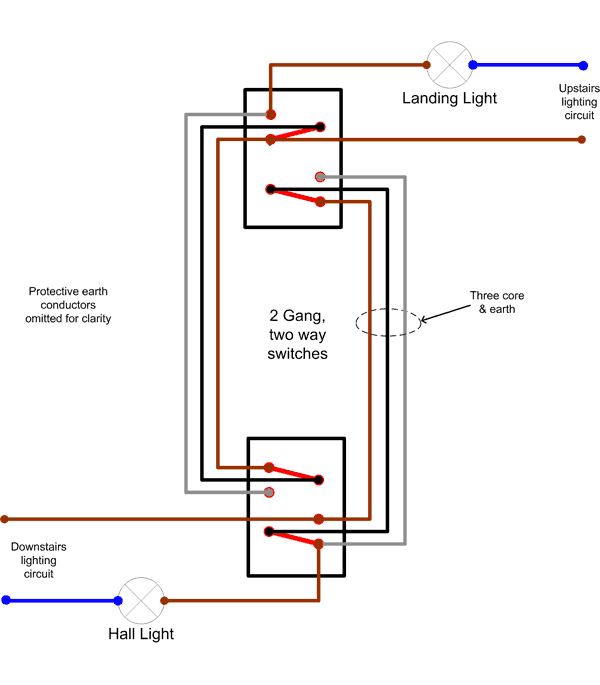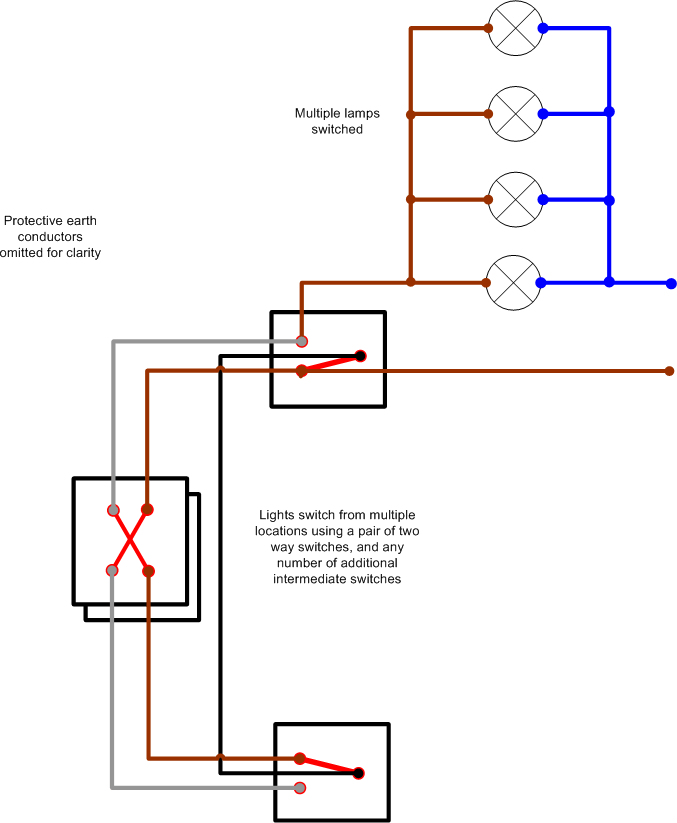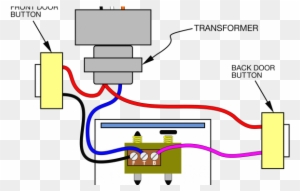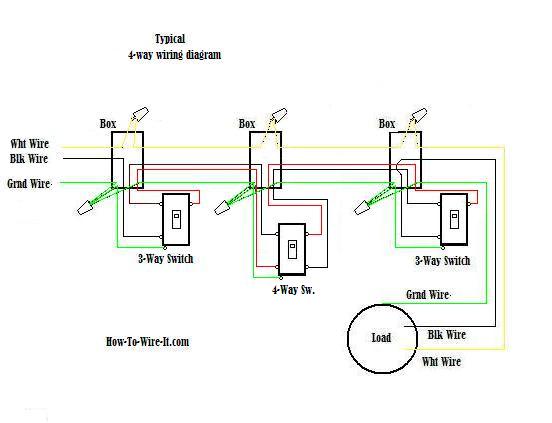Because the electrical code as of the 2011 nec update requires a neutral wire in most new switch boxes a 3 wire cable runs between the light and switch. Intermediate switches can be used for 1 and 2 way switching.
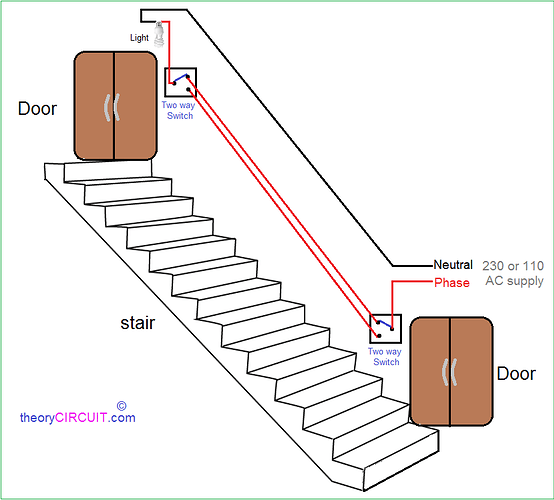
2 Way Wifi Light Switch Uk Hardware Home Assistant Community
Wiring a intermediate light switch. Four way switch wiring instructions inside the switch packaging. The typical example of this is on a landing in a house when perhaps there is a switch at the bottom of the stairs one at the top of the stairs and one at the end. The red and black are used for hot and the white neutral wire at the switch box allows for powering a timer remote control or other programmable switch. Staircase wiring using intermediate switch. Below is a given schematic circuit to control a light point from three different places by using two 2 way switches and intermediate switch in the middle of stairs. The diagram shows the common method of wiring an intermediate switch into a two way light switch circuit.
This page shows it wired in the old cable colours if your house has the new colours you want to go here. It is possible to bring all of the wiring into the ceiling light electrical box and wire your 3 ways and 4. This is an updated version of the first arrangement. The intermediate light switch is used where three or more switches control one light and used in conjunction with two two way light switches to achieve this. It is used when you have three or more switches controlling one light the middle switch needs to be an intermediate light switch. Here we have a 3 way switching lighting circuit sometimes called two way switching with intermediate.
The wiring connections on 4 way switches varies between manufacturers. Sometimes there is only a switch wiring diagram printed on the inside of the 4 way switch package box. It is effectively two single gang intermediate switches on one face plate. An intermediate switch is a three way light switch. If replacing an existing switch note the location of the terminals and the colour and position of cable connections. This allows a single light to be turned on or off from any of the switches.

